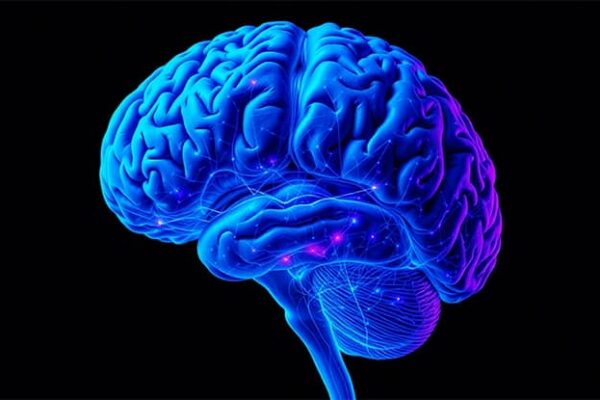Eating Disorders (EDs) are complex mental disorders characterized by abnormal eating habits or attitudes towards food intake, often associated with a distorted perception of one’s own weight and body. The main types of EDs include anorexia nervosa, bulimia nervosa, and binge eating disorder, which can lead to serious physical, psychological, and social consequences and require professional treatment and support.
The global prevalence of eating disorders varies but typically affects between 1% and 4% of the population, impacting millions of people worldwide. Women are more likely to suffer from eating disorders than men. For example, anorexia nervosa and bulimia nervosa are 10 times more common in women than in men.
People with eating disorders often suffer from other mental health conditions such as depression, anxiety disorders, or impulse control disorders. Moreover, eating disorders have the highest mortality rate among all mental illnesses. For instance, the mortality rate for anorexia nervosa ranges from 5% to 20%.

Types of Eating Disorders
There are many types of eating disorders, each with its own characteristics, symptoms, and health consequences. These disorders can seriously affect a person’s physical and mental state, as well as their social relationships and quality of life.
It is important to understand that eating disorders are not limited to anorexia or bulimia; they represent a wide spectrum of conditions, including, for example, binge eating disorder and avoidant/restrictive food intake disorder (ARFID).
Anorexia nervosa and bulimia nervosa are perhaps the most well-known and widely discussed types of eating disorders. However, there are other, less well-known but equally serious disorders that require a personalized treatment approach.
A key factor in the treatment of eating disorders is early detection and diagnosis. The earlier the diagnosis is made, the greater the chances of successful recovery. Unfortunately, many people suffering from these disorders often hide their problems due to shame or denial, which seriously complicates the treatment process.
Anorexia Nervosa
Anorexia nervosa is a severe mental disorder characterized by intentional food restriction, a fear of gaining weight, and a distorted perception of one’s body. People with anorexia nervosa often perceive themselves as overweight even when they are clearly underweight.
This disorder most commonly occurs in girls and young women, although it sometimes affects men. Anorexia nervosa can lead to a range of serious health problems, such as osteoporosis, menstrual irregularities, poor skin, hair, and nail condition, as well as serious cardiac and renal problems. Additionally, it has a high mortality rate, with suicide being the leading cause of death among individuals with this disorder.
Key Symptoms and Manifestations:
- Obsession with Thinness: Constant attempts to lose weight even when already underweight.
- Distorted Body Image: People with anorexia nervosa often see themselves as heavier than they actually are.
- Fear of Weight Gain: The fear of gaining weight can be so strong that a person excludes many foods from their diet and reduces overall food intake.
- Food Restrictions: This may include reducing the amount of food consumed and avoiding certain foods.
- Physical Changes: Individuals with anorexia nervosa may experience thinning hair, pale skin, the development of lanugo (soft body hair), lowered body temperature, and menstrual irregularities in women.
- Extreme Physical Activity: Some people with this eating disorder exhaust themselves with excessive physical activity in an attempt to lose weight.
- Behavioral Changes: These may include avoiding places where food is served, refusing food, eating small portions, cutting food into tiny pieces, and eating either too slowly or too quickly.
- Social Withdrawal: Avoiding meetings with friends and family, ignoring social life, and avoiding social situations involving food.
- Psychological Changes: Depression, anxiety, guilt, self-dissatisfaction, low self-esteem.
- Health Issues: Abdominal pain, constipation, poor dental health, brittle nails, general weakness, weakened immune system.
These symptoms can vary in severity and may co-occur with other mental disorders.
Bulimia Nervosa
Bulimia nervosa is another eating disorder characterized by recurring episodes of binge eating during which a person feels a loss of control over their actions, followed by inappropriate measures to prevent weight gain, such as self-induced vomiting, use of laxatives, or excessive physical exercise.
These cycles of binge eating and compensation are often accompanied by feelings of guilt, shame, and dissatisfaction with oneself. Bulimia nervosa can lead to serious physical consequences, such as tooth decay and damage to the esophagus due to regular vomiting, digestive problems, and electrolyte imbalance, which can be dangerous for the heart.
Like anorexia nervosa, bulimia nervosa is more common in women but is sometimes diagnosed in men. The disorder often begins in adolescence or young adulthood, although it can develop in adults.
Bulimia nervosa is often associated with other mental health problems such as depression, anxiety disorders, or substance abuse.
Key Symptoms and Manifestations:
- Regular Episodes of Binge Eating: Consuming large amounts of food in a short period while feeling a loss of control over one’s actions.
- Compensatory Behaviors: After binge eating, attempts are made to eliminate the consumed calories through self-induced vomiting, use of laxatives, diuretics, or intense physical activity.
- Excessive Concern with Appearance and Weight: Constant dissatisfaction with appearance and weight, leading to frequent weight fluctuations.
- Distorted Body Image: People with bulimia nervosa often perceive their bodies as thicker than they actually are.
- Feelings of Guilt and Shame: Feelings of guilt and shame after each episode of binge eating and subsequent compensation.
- Social Withdrawal: Avoiding eating in public places or refusing to participate in social events involving food.
- Erratic Eating Habits: Frequent changes in diet and constant attempts to follow strict diets further provoke binge eating.
- Health Issues: Damage to teeth and gums due to frequent vomiting, gastrointestinal problems, menstrual irregularities in women, dehydration, and electrolyte imbalance.
- Psychological Issues: Depression, anxiety, low self-esteem, possible substance abuse.
This disorder requires comprehensive treatment, including psychotherapy, medication, and dietary correction.
Binge Eating Disorder
Binge eating disorder is characterized by regular episodes of binge eating during which a person feels a loss of control and cannot stop eating even when they are full. Unlike bulimia nervosa, binge eating episodes are not followed by compensatory behaviors such as self-induced vomiting or excessive physical exercise.
These episodes are often accompanied by feelings of guilt, shame, and depression. Binge eating disorder can lead to obesity and related health problems such as diabetes, cardiovascular diseases, and arthritis. This disorder is most common in adults but can also develop in adolescents. Binge eating disorder occurs in men and women from different social classes and ethnic groups.
People with binge eating disorder often suffer from low self-esteem and other mental health problems such as depression, anxiety, or substance abuse.
Key Symptoms and Manifestations:
- Regular Episodes of Binge Eating: Consuming large amounts of food in a short period, usually within two hours, with a feeling of loss of control over the situation.
- Lack of Compensatory Behaviors: Unlike bulimia nervosa, binge eating episodes are not followed by attempts to compensate for consumed calories through self-induced vomiting, laxatives, or excessive physical exercise.
- Eating Alone: Consuming large portions of food often happens alone due to shame or guilt.
- Feelings of Deep Shame, Despair, and Discomfort after each binge eating episode.
- Eating When Not Hungry: Eating even when not feeling hungry.
- Lack of Control: An inability to control what and how much is eaten.
- Social Withdrawal: Avoiding places where food is served, withdrawal from social life, and avoiding social situations involving food.
- Health Issues: Overweight or obesity, which can lead to diabetes, hypertension, and heart diseases.
- Psychological Issues: Depression, anxiety, low self-esteem, and possible development of substance abuse.

Causes of Eating Disorders
Eating disorders are complex mental health conditions that involve abnormal eating habits and attitudes toward food. They can manifest as overeating, undereating, or an excessive concern with weight and body shape.
The causes of eating disorders are diverse and often related to a combination of biological, psychological, and sociocultural factors. Biological factors include genetic predisposition and brain chemical imbalances. Psychological factors, such as low self-esteem, perfectionism, and stress, can also contribute to the development of these disorders.
Sociocultural factors, such as media influence, beauty ideals, and peer pressure, often play a decisive role in shaping one’s body image and eating behavior.
It is important to understand that none of these factors alone can cause an eating disorder, but together they create the conditions under which it can develop.
Genetic Factors
Genetic factors play a significant role in the development of eating disorders. Research shows that the risk of developing anorexia nervosa, bulimia nervosa, and binge eating disorder is significantly higher among those whose parents have suffered from these conditions.
While the specific genes responsible for eating disorders have not yet been identified, some studies suggest a genetic predisposition to anxiety, depression, and obsessive-compulsive disorders, which often accompany eating disorders.
Additionally, some genetically determined factors, such as insulin sensitivity and metabolism, can affect appetite regulation and body weight, thereby contributing to the development of eating disorders.
Sociocultural Factors
Sociocultural factors also play a significant role in the development of eating disorders. These include the influence of media, social networks, fashion, cultural beauty ideals, and peer pressure.
- Media and Social Networks Influence: Media and social networks often promote idealized body images, which can cause dissatisfaction with one’s own body and a desire to achieve the “perfect” body. This often leads to unhealthy weight control methods, such as fasting, inducing vomiting, exhausting physical exercises, or overeating.
- Cultural Beauty Ideals: Different cultures have different beauty standards. In Western countries, for example, thinness is often associated with success and attractiveness, while in some other cultures, a fuller body is considered a sign of health and prosperity.
- Peer Pressure: The desire to meet the expectations of one’s social group can lead to the need to change one’s appearance, including body weight. This is especially relevant for teenagers, who are in the process of forming their identity and are sensitive to the opinions of their peers.
Psychological Factors
Psychological factors also significantly influence the development of eating disorders.
- Low Self-Esteem: People with low self-esteem are often dissatisfied with their bodies and are more susceptible to stress and depression, which increases the risk of developing eating disorders.
- Perfectionism: Excessive striving for perfection can lead to excessive criticism of one’s body, which may stimulate the development of unhealthy eating habits.
- Anxiety and Depression: Eating disorders are often accompanied by anxiety and depression. This can be both a cause and a consequence of the disorders.
- Obsessive-Compulsive Traits: Traits such as excessive preoccupation with thoughts about food, weight, and physical activity can also contribute to the development of eating disorders.
- Traumatic Events: Research shows that people who have experienced traumatic events, such as physical or sexual abuse, are more likely to suffer from eating disorders.

Eating Disorders: Impact on Health
Anorexia, bulimia, and binge eating disorder have serious consequences for both physical and mental health. They affect all organs and systems of the body, including the heart, bones, digestive system, and nervous system. In the long term, these disorders can trigger the onset of chronic diseases and an increased risk of mortality.
For example, anorexia can lead to severe malnutrition, muscle loss, osteoporosis, bradycardia, and even heart failure. Bulimia can cause damage to the esophagus and teeth due to frequent vomiting, as well as electrolyte imbalances and heart problems. Binge eating disorder is often associated with obesity, which increases the risk of developing cardiovascular diseases, type 2 diabetes, and other serious health problems.
It is also important to note that eating disorders are often accompanied by mental health issues such as depression, anxiety, and an increased risk of suicidal behavior. All of this underscores the need for timely detection and treatment of eating disorders to prevent long-term health consequences.
Physical Consequences
Eating disorders have numerous physical consequences, which can be extremely serious and even potentially life-threatening.
- Cardiovascular System: A lack of nutrients can lead to low blood pressure, bradycardia (slow heart rate), and ultimately, heart failure. Overeating, especially when combined with obesity, can increase the risk of developing hypertension and coronary heart disease.
- Skeletal System: A deficiency of calcium and vitamin D due to poor nutrition can lead to bone loss, osteoporosis, and an increased risk of fractures.
- Digestive System: Regular vomiting, characteristic of bulimia, can cause damage to the esophagus, ulcers, bleeding, and dental problems due to constant contact with stomach acid. Constipation and diarrhea are also common in eating disorders.
- Endocrine System: Poor nutrition can disrupt the hormonal system, often leading to a decrease in sex hormone levels, growth delays in children and adolescents, and menstrual problems in women.
- Nervous System: A lack of nutrients can affect brain function, causing headaches, weakness, numbness, and even coordination problems.
Psychological Consequences
Eating disorders affect not only the physical state of the body but also have a profound impact on mental health.
- Depression and Anxiety: There is a strong link between eating disorders and other mental health conditions, particularly depression and anxiety. A lack of nutrients negatively affects mood and anxiety levels.
- Low Self-Esteem: People with eating disorders often feel dissatisfied with their bodies and have low self-esteem, which can lead to social isolation and a decreased quality of life.
- Obsessive-Compulsive Symptoms: Eating disorders are often associated with obsessive-compulsive symptoms, such as persistent thoughts about food, weight, and physical activity.
- Suicidal Thoughts and Attempts: Individuals with eating disorders are at an increased risk of suicidal thoughts and suicide attempts, particularly those with anorexia.
The psychological consequences of eating disorders can be extremely serious and often have a long-term negative impact on the quality of life. Therefore, support from a psychologist is crucial in helping to cope with these issues.

Diagnosis
Eating disorders often remain undetected or undiagnosed due to the stigma associated with these conditions and because many symptoms can be hidden or mistakenly attributed to other causes. The diagnostic approach involves evaluating physical health, mental state, and eating behavior.
Diagnosis begins with taking a medical history, including a history of eating behaviors, physical health, and mental health. Doctors and other healthcare professionals will look for signs of underweight, irregular menstrual cycles, dental and gum problems, and other physical indicators of eating disorders.
In addition, it is important to assess the mental state, as eating disorders are often accompanied by other mental health disorders, such as depression, anxiety, or obsessive-compulsive disorder. Psychotherapists and psychiatrists may use structured clinical interviews or standardized questionnaires to assess a patient’s mental state.
The final diagnosis is usually based on criteria set out in the Diagnostic and Statistical Manual of Mental Disorders (DSM-5) or the International Classification of Diseases (ICD). However, it is important to remember that diagnosis is only the first step on the path to recovery. After a diagnosis is made, a treatment plan tailored to the patient’s individual needs must be developed.
Diagnostic Criteria
Here are some of the main criteria for diagnosing common eating disorders based on the Diagnostic and Statistical Manual of Mental Disorders (DSM-5):
- Anorexia Nervosa:
- Significant weight deficit (weight below the norm for age and height).
- Intense fear of gaining weight even when underweight.
- Distorted perception of body weight and shape, excessive influence of weight on self-esteem, or denial of the seriousness of current weight deficit.
- Bulimia Nervosa:
- Recurrent episodes of binge eating, characterized by consuming a large amount of food in a short period and a sense of loss of control over eating.
- Repeated inappropriate behavior aimed at preventing weight gain, such as self-induced vomiting, misuse of laxatives or diuretics, fasting, or excessive exercise.
- Self-esteem is heavily influenced by body shape and weight.
- Binge Eating Disorder:
- Recurrent episodes of binge eating, characterized by consuming a large amount of food in a short period and a sense of loss of control over eating.
- Binge eating episodes are often accompanied by at least three of the following: eating rapidly; eating until uncomfortably full; eating large amounts of food when not physically hungry; eating alone due to embarrassment over the amount of food consumed; feeling disgusted with oneself, depressed, or guilty after overeating episodes.
It is important to understand that only a qualified medical professional can make a diagnosis based on a comprehensive assessment of the patient’s condition, including medical tests, psychological assessments, and evaluation of eating behaviors.
Methods and Tools for Diagnosis
The diagnosis of eating disorders involves various methods and tools. Here are some of them:
- Clinical Interview: This is the first and one of the most important stages in the diagnostic process. The doctor asks the patient a series of questions about their eating behaviors, physical health, body image, family history, and other factors that may be associated with eating disorders.
- Physical Examination: Includes measuring height, weight, waist circumference, pulse, blood pressure, and other physiological parameters.
- Laboratory Tests: Blood and urine tests to check electrolyte levels, kidney function, blood glucose levels, and other important health indicators.
- Psychometric Tests: These are standardized questionnaires that help assess the psychological state of the patient, including their attitudes towards food, body, and self-awareness. Examples include the Eating Attitudes Test (EAT), Body Shape Questionnaire (BSQ), and Eating Disorder Inventory (EDI).
- Food Diary: Patients may be asked to keep a food diary, recording everything they eat and drink, as well as their thoughts and feelings about food.
- Assessment of Eating Behavior: Specialized tools may be used to assess eating behaviors, such as the Food Frequency Questionnaire (FFQ) or 24-hour Dietary Recall.
- Brain Structure and Function Assessment: In some cases, magnetic resonance imaging (MRI) or computed tomography (CT) may be used to evaluate brain structure and function.
- Cognitive Function Assessment: Sometimes, cognitive functions are tested to evaluate attention, memory, executive functions, and other aspects of cognitive functioning.
All these tools and methods help doctors and other specialists form a comprehensive understanding of the patient’s condition and develop a treatment plan.

Treatment and Recovery
Treatment for eating disorders and recovery is a complex, multi-phase process that requires an individualized approach and active patient involvement. This involves both physical and psychological recovery.
It is important to understand that treating eating disorders is not just about controlling eating habits and restoring a healthy weight. It also involves addressing the underlying causes that led to the development of the disorder, such as low self-esteem, stress, depression, or anxiety. Additionally, treatment often includes working on social skills, improving relationships with loved ones, and restoring a normal lifestyle.
Treatment may include individual counseling, group therapy, family therapy, medication, nutritional therapy, and other methods, depending on the specific case and patient needs. Each patient is unique, so the treatment plan should be tailored to the individual.
It is also important to remember that recovery is a long-term process that may require lifestyle changes and support from family and friends. There is no quick recovery, so patience and effort are required from both the patient and their loved ones. However, with the right support and treatment, most people can fully recover from eating disorders and return to a healthy and happy life.
Medical Intervention
Medical intervention is a key component in the treatment and recovery process. It includes several aspects:
- Medication: Antidepressants, anxiolytics, and other psychotropic drugs are prescribed to treat comorbid mental illnesses, such as depression or anxiety, which often accompany eating disorders. Some medications also help control symptoms of binge eating or bulimia.
- Nutritional Therapy: Involves working with a dietitian or nutritional therapist to develop a personalized meal plan that helps restore a healthy weight and nutritional balance.
- Inpatient Treatment: In some cases, especially with severe ischemia or other complications, inpatient treatment may be required, which includes intravenous feeding, medication, and monitoring of vital signs.
- Monitoring and Support: Regular visits to the doctor to monitor progress, adjust treatment, and provide support are an important part of the recovery process.
It is important to remember that medical intervention should be part of a comprehensive treatment plan that also includes psychotherapy, social support, and lifestyle changes. This integrated approach is most effective in treating eating disorders.
Psychotherapy
Psychotherapy is a fundamental part of treating eating disorders. It helps patients understand the causes of their disorder, develop healthy strategies for coping with stress and negative emotions, and improve self-esteem and relationships with others.
- Cognitive-Behavioral Therapy (CBT): This is one of the most effective approaches to treating eating disorders. CBT helps patients change negative thought patterns and behaviors that contribute to the disorders. For example, this may involve working on perfectionism, negative self-image, or excessive concern about weight and appearance.
- Family Therapy: Eating disorders often affect the entire family, and involving family members in therapy can be very beneficial. Family therapy helps family members better understand the disorder and learn how to provide support without reinforcing negative behavior patterns.
- Group Therapy: Connecting with others who are struggling with similar issues can be a valuable form of support. Group therapy helps patients feel less isolated and understand that others share similar feelings and challenges.
- Art Therapy or Music Therapy: Creative expression is a powerful way to process emotions and experiences. Art therapy or music therapy allows patients to express themselves and develop new ways of coping with negative emotions and stress.
Social Support
Social support plays a critically important role in the treatment and recovery process in the context of eating disorders. Here are some of its key components:
- Support from Friends and Family: The love and understanding of loved ones can provide tremendous support. However, it is important for friends and family members to be well-informed about eating disorders to offer support without exacerbating the situation.
- Support Groups: Both formal and informal groups allow individuals to share their experiences and strategies with others in similar situations.
- Social Media: Online support groups and social networks can be a valuable resource for people living in remote areas or those who are uncomfortable meeting with a group face-to-face. However, it is important to be cautious, as not all online resources are equally helpful.
- Professional Support: Psychologists, psychotherapists, doctors, and other specialists can provide important support and resources during the recovery process.
The main focus of providing social support should be on creating a safe, supportive, and non-judgmental environment that facilitates recovery. It is also important to understand that while support from others is a valuable resource, the ultimate responsibility for recovery lies with the patient themselves.




